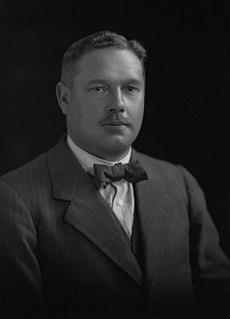Related Research Articles

The Scottish Trades Union Congress (STUC) is the national trade union centre in Scotland. With 40 affiliated unions as of 2020, the STUC represents over 540,000 trade unionists.

The Ceramic and Allied Trades Union (CATU) was a trade union representing pottery workers in the United Kingdom.
The Workers' Union was a general union based in the United Kingdom, but with some branches in other countries. During the 1910s, it was the largest general union in the UK, but it entered a rapid decline in the 1920s, and eventually became part of the Transport and General Workers' Union (TGWU).
The Miners' Federation of Great Britain (MFGB) was established after a meeting of local mining trade unions in Newport, Wales in 1888. The federation was formed to represent and co-ordinate the affairs of local and regional miners' unions in England, Scotland and Wales whose associations remained largely autonomous. At its peak, the federation represented nearly one million workers. It was reorganised into the National Union of Mineworkers in 1945.

Ernest George Hicks was a British trades unionist and Labour Party politician.

The Sheffield Trades and Labour Council, usually known as the Sheffield Trades Council, is a labour organisation uniting trade unionists in Sheffield.

The Amalgamated Association of Operative Cotton Spinners and Twiners, also known as the Amalgamation, was a trade union in the United Kingdom which existed between 1870 and 1970. It represented male mule spinners in the cotton industry.

The National Union of Scottish Mineworkers (NUSW) is a trade union in Scotland, founded in 1894 as the Scottish Miners Federation. It joined the Miners' Federation of Great Britain, and in 1914 changed its name to National Union of Scottish Mineworkers. It survives as the National Union of Mineworkers.

The Nottinghamshire Miners' Association was a trade union representing coal miners in Nottinghamshire, in England.

The Trades Union Congress (TUC) is a national trade union centre, a federation of trade unions in England and Wales, representing the majority of trade unions. There are 48 affiliated unions, with a total of about 5.5 million members. The current General Secretary is Frances O'Grady.

The London Trades Council (1860–1953) was an early labour organisation, uniting London's trade unionists. Its modern successor organisation is the Greater London Association of Trades (Union) Councils
The Amalgamated Society of Engineers (ASE) was a major British trade union, representing factory workers and mechanics.
The Coopers' Federation of Great Britain was a trade union representing coopers in the United Kingdom and, initially, also in Ireland.
The National Federation of Building Trades Operatives (NFBTO) was a trade union federation in the United Kingdom, consisting of unions with members in construction and related industries.
The National Union of Wallcoverings, Decorative and Allied Trades (NUWDAT) was an industrial union representing workers connected with the manufacture of wallpaper in the United Kingdom.

The Printing and Kindred Trades Federation (P&KTF) was a trade union federation in the United Kingdom.
The Warwickshire Miners' Association was a trade union representing coal miners in the Warwickshire area of England.
The Prudential Staff Union was a trade union representing workers at the Prudential insurance company, in the United Kingdom. The only union of insurance workers to affiliate to the Labour Party, it was briefly represented on its National Executive Committee, and for a time sponsored a Member of Parliament.
The Fawcett Association was a trade union representing postal clerks in London.
The Amalgamated Society of Coopers was a trade union representing coopers in the United Kingdom and Ireland.